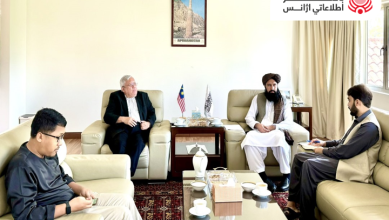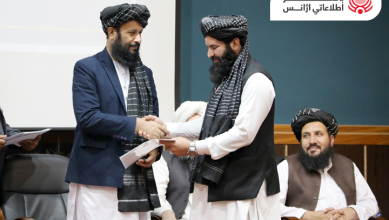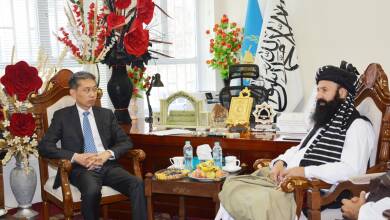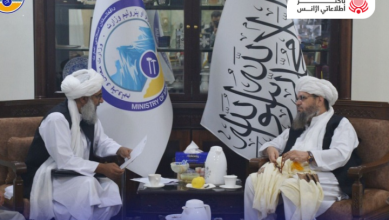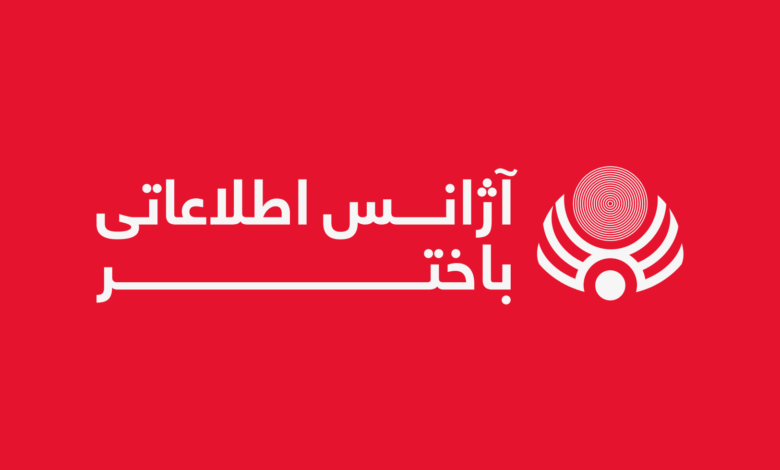
Senior Officials Meeting
Kabul, Afghanistan, (BNA) 3 July 2013
1. The Senior Officials Meeting (hereinafter called "the Meeting") was held on 3 July 2013 at Kabul, Afghanistan, a year after the Tokyo Conference of July 8, 2012 where the International Community and the Afghan Government met to reaffirm and further consolidate their partnership from Transition to the Transformation Decade. Today’s meeting serves as a follow-up mechanism for the Tokyo Mutual Accountability Framework (TMAF), the main outcome of the Tokyo Conference (July 2012). The TMAF establishes an approach based on mutual commitments of the Afghan Government and the International Community to help Afghanistan achieve its development and governance goals. The purpose of the Meeting was to review progress, key policy issues, and the way forward under TMAF. The Government of the Islamic Republic of Afghanistan thanked the International Community for their generous support and emphasized the significance of a peaceful political transition through free, fair and transparent elections. The Meeting was co-chaired by the Ministers of Foreign Affairs and the Finance of the Islamic Republic of Afghanistan and the Special Representative of the United Nations Secretary General to Afghanistan. Delegations from 40 countries and 8 international agencies in addition to Ministers and senior officials of the Afghan Government and representatives of Afghan civil society and private sector attended the Meeting.
2. Substantive policy discussions took place in two plenary sessions on elections and aid effectiveness and three working group sessions on Governance, Rule of Law and Human Rights (with a particular focus on the rights of women and girls); Integrity of Public Finance and Commercial Banking; Government Revenues, Budget Execution and Sub-National Governance; and Inclusive and Sustained Growth and Development.
3. Representatives of the Islamic Republic of Afghanistan emphasized their continued resolve to fulfill commitments made by the Government under TMAF. The international community also reiterated its pledge to continue to support Afghanistan through transition and the transformation decade and reaffirmed its Tokyo commitment of providing US$16 billion US dollars through 2015, and sustaining support, through 2017, at or near levels of the past decade. The participants stressed that sustained international support in the years ahead requires resolute action by both the International Community and the Afghan Government, particularly in the coming months, to address areas of TMAF where further progress is required.
4. Afghanistan has made progress in a number of areas under the TMAF. A comprehensive timeline and a detailed operational plan for the Presidential elections have been prepared as well as arrangements for top up voter registration. Participants agreed, however, that it is important for the two elections laws to take effect as soon as it is passed by the parliament and signed by the President before the summer recess, in order to provide the basis for the appointment of Commissioners of the Independent Elections and Complaint Commissions. This will help ensure that the Presidential, Provincial Council and Parliamentary elections are seen by the Afghan people to be properly based in sound legislation. The Afghan Government and the International Community agree that credible and inclusive elections are profoundly important for a successful and peaceful political transition and for sustaining international support.
5. Discussions on progress in relation to human rights, including women’s rights, noted the vital need for a continued commitment of the Afghan Government to safeguard these rights. Participants agreed that while much has been achieved in the last decade, these gains should not be rolled back and more remains to be achieved. Maintaining this momentum includes implementation of the Elimination of Violence Against Women (EVAW) law and monitoring of its progress. Participants noted the initial concern of the UN High Commisioner with respect to the new appointments to the Afghan Independent Human Rights Commission (AIHRC). The Afghan Government reaffirmed its commitment to maintaining the standards of the Human Rights Commissioners in acccordance with Article 11 of the AIHRC law and the Paris Principles to retaining its "A" accreditation.
6. Participants agreed that continued efforts were needed to hold complicit parties accountable for their actions and to secure appropriate criminal convictions in relation to the Kabul Bank fraud, which would enable measures to recover stolen assets, particularly those held abroad.
7. The overall revenue growth over the last decade was welcomed as a significant achievement. At the same time, the Afghan Government agreed that continued efforts were needed to ensure that revenue targets, as agreed with the International Monetary Fund (IMF), were needed to help remove outstanding obstacles to the continuation of the IMF-supported program.
8. Participants acknowledged that progress has been made on the declaration and publication of assets of senior members of the Executive and Judiciary, while agreeing that declared assets will continue to be verified based on Afghan law.
9. The International Community congratulated the Afghan Government on its impressive performance on budget transparency, resulting in Afghanistan moving from a score of 21% in 2010 on the Open Budget Index to 59% in 2012, exceeding the TMAF target. Participants anticipate further progress in budget management when the new Public Expenditure and Financial Accountability (PEFA) assessment is completed.
10. Participants agreed that progress had been made in drafting new policies to enable the Provincial and District levels of government to play a more effective role in responding to development needs at those levels and increasing the ability of citizens to hold government to account. Participants also agreed that it was now important to finalize, consult, and start applying a Provincial budgeting policy.
11. Participants also noted that great strides have been made by Afghanistan to make progress toward its Millennium Development Goals (MDGs). Of note, there has been considerable progress in enabling boys and girls to enroll in school and in enabling women and men access to basic health services. It was agreed that quality improvements across basic service delivery will require attention and adequate national budget allocations.
12. Participants looked forward to the passage of the Minerals Law, which was approved by Cabinet and is now before the Parliament. Participants commended the progress made towards Extractives Industries Transparency Initiative compliance, while noting that some issues remained to be addressed. The Afghan government reaffirms its commitment to the preparation and implementation of a comprehensive and effective development framework for the Extractive Industries, including measures incorporating international best practice on social, environmental, as well as on community engagement.
13. Participants acknowledged that the International Community had made progress in delivering its commitments under TMAF. Participants expressed the need for the international community and the Afghan Government to make greater efforts to progress against aid effectiveness commitments, and the 50 percent on budget and 80 percent alignment targets as per TMAF.
14. Participants welcomed the contribution of the civil society and their active engagment in the TMAF process, and took note of their statement. The Participants further recalled and reaffirmed the role of the Afghan civil society, particularly women‘s organizations in advocating for and supporting human rights, good governance and sustainable social, economic and democratic development of Afghanistan through a sustained dialogue.
15. Participants recognized the need to continue to review and encourage rapid progress against the TMAF within a realistic but accelerated timeframe as a roadmap for Afghanistan to achieve economic self-reliance. Government and donors will continue to meet in Kabul on a monthly basis, both at the Ministerial and Ambassadorial levels, or equivalent, with their designates pursuing progress at the working level. Existing Ambassador and Heads of Agency fora will serve as a continued platform for engaging with the wider international community.
16. Participants looked forward to the Ministerial meeting to be co-chaired by Afghanistan and the United Kingdom in 2014, after the Presidential election in Afghanistan. The meeting will be held 3 to 6 months after the formation of the next Government of the Islamic Republic of Afghanistan. As agreed at Tokyo, the Ministerial meeting will review progress, update indicators, assess resource requirements and renew Afghan Government and international commitments.
17. Participants encouraged the Afghan Government and the International Community to continue efforts to meet commitments under TMAF to help improve the lives of the Afghan people and advance good governance, economic growth, peace and stability in Afghanistan.
18. The Co-Chairs thanked the participants for their continuing support to Afghanistan at a time of fiscal hardships in donor countries and looked forward to another productive dialogue to review TMAF at the Ministerial level in 2014.

